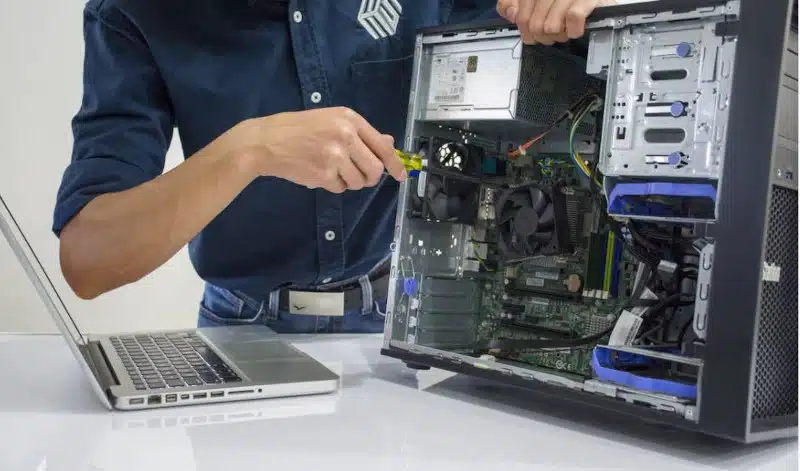The ABCs of Computer Repair provide the foundation for troubleshooting and maintenance. Understanding hardware nuances and mastering effective techniques are essential for a seamless computing experience.
Understanding the Basics of Computer Repair
To comprehensively understand computer repair, start exploring by meticulously examining the hardware components. Begin by scrutinizing the motherboard, paying attention to any signs of wear, loose connections, or visible damage. Furthermore, extend your analysis to the RAM modules, ensuring they are securely seated, and inspect the CPU for thermal paste issues.
Moving beyond the core components, delve into peripheral devices. Assess the condition of input devices like keyboards and mice, ensuring proper functionality. Examine output devices such as monitors or printers for any anomalies.
Transitioning to software, incorporate advanced diagnostic tools into your toolkit. System monitoring utilities can provide real-time insights into resource utilization, aiding in identifying potential bottlenecks or irregularities. Additionally, familiarize yourself with event logs to trace system activities and pinpoint potential issues.
Moreover, it is essential to emphasize the importance of keeping your operating system and software applications current. This will help you benefit from performance improvements, bug fixes, and security patches. Educating yourself on the significance and the process of scheduled updates can help you ensure that your devices and software are running smoothly and efficiently and can also protect you from potential security vulnerabilities.
To better understand computer storage, it is essential to explore the complexities of data storage. You should become familiar with various storage devices, including traditional hard drives and modern Solid-State Drives (SSDs). Additionally, it is crucial to implement effective backup strategies and emphasize the importance of regularly backing up data to prevent loss in unforeseen circumstances.
Establishing a routine maintenance schedule that includes proactive measures like running antivirus scans, clearing temporary files, and optimizing system settings is essential. This comprehensive approach ensures a more robust and reliable computing environment.
Troubleshooting Techniques
Effectively troubleshooting computer issues is a cornerstone of any skilled technician’s toolkit. Begin with a meticulous analysis of error messages, leveraging online resources to decipher their meanings. Familiarize yourself with standard error codes and their implications, enabling swift identification and resolution.
When confronted with software-related challenges, the power of safe mode becomes invaluable. Booting into safe mode isolates the system, allowing you to pinpoint and address issues without unnecessary third-party interference.
Hardware troubleshooting requires a systematic approach. Start with a comprehensive cable inspection, ensuring all connections are secure. Loose or damaged cables can lead to many issues, and a thorough examination can often reveal hidden culprits behind mysterious malfunctions.
Use diagnostic tools to check hardware components like storage devices, memory modules, and peripherals. A systematic approach helps identify the root cause of hardware issues.
Users need to know how to use system restore points effectively. In case of unexpected issues arising from software changes, system restores can help revert changes and bring back stability. Creating restore points before performing any software installations or updates is recommended. This way, you can ensure a backup is available if something goes wrong.
In addition to these techniques, individuals should explore online support forums and communities to gain valuable insights and collective troubleshooting experiences, expanding their knowledge base.
In conclusion, mastering the ABCs of computer repair involves a balance between understanding the basics and employing effective troubleshooting techniques. By consistently applying these principles, you ensure a smoother computing experience.
Ready to optimize your computer’s performance? Visit PCMechanic Computer Repair in Davenport, FL, for expert assistance in implementing these tips and ensuring your computing systems run smoother than ever.
Image Credit: Photo by Elias Gamez


